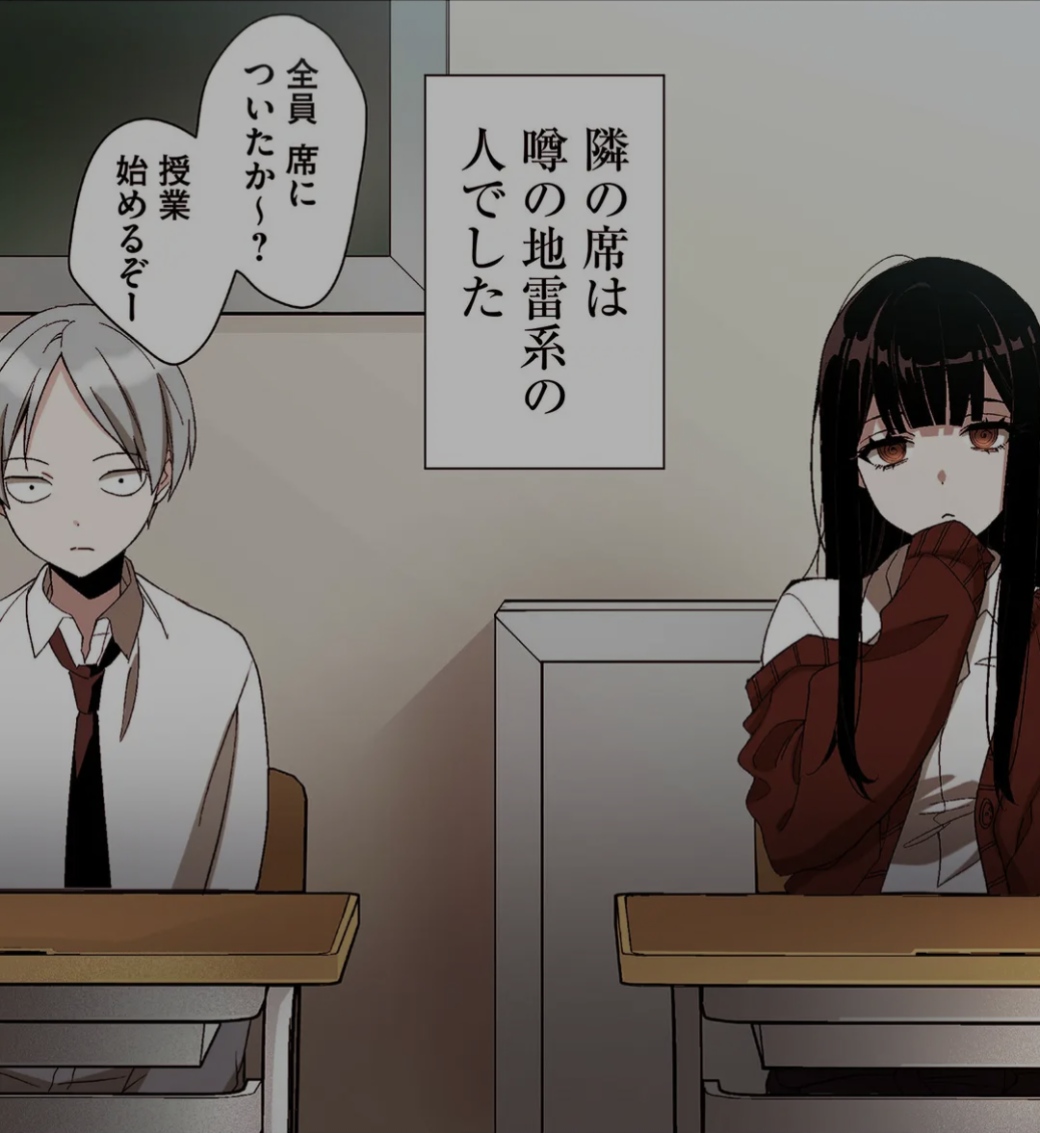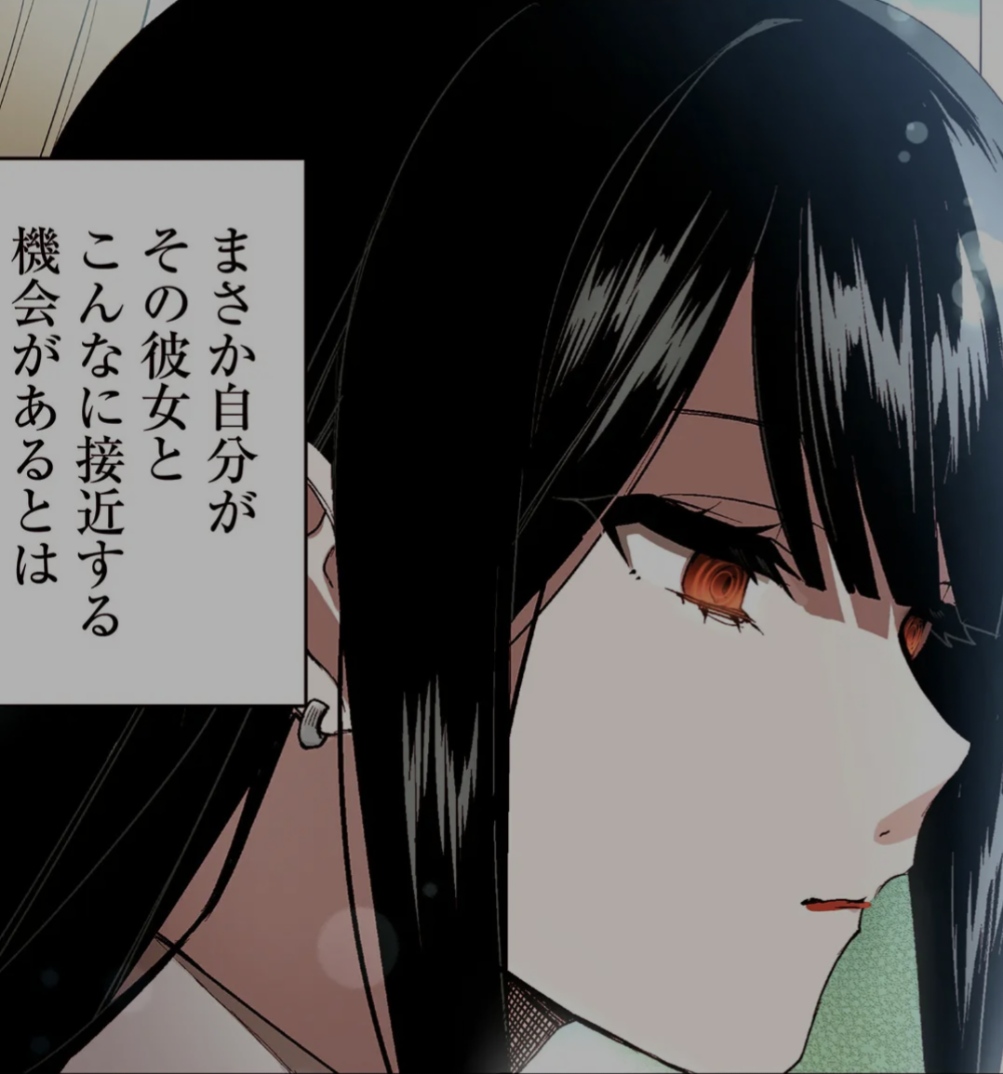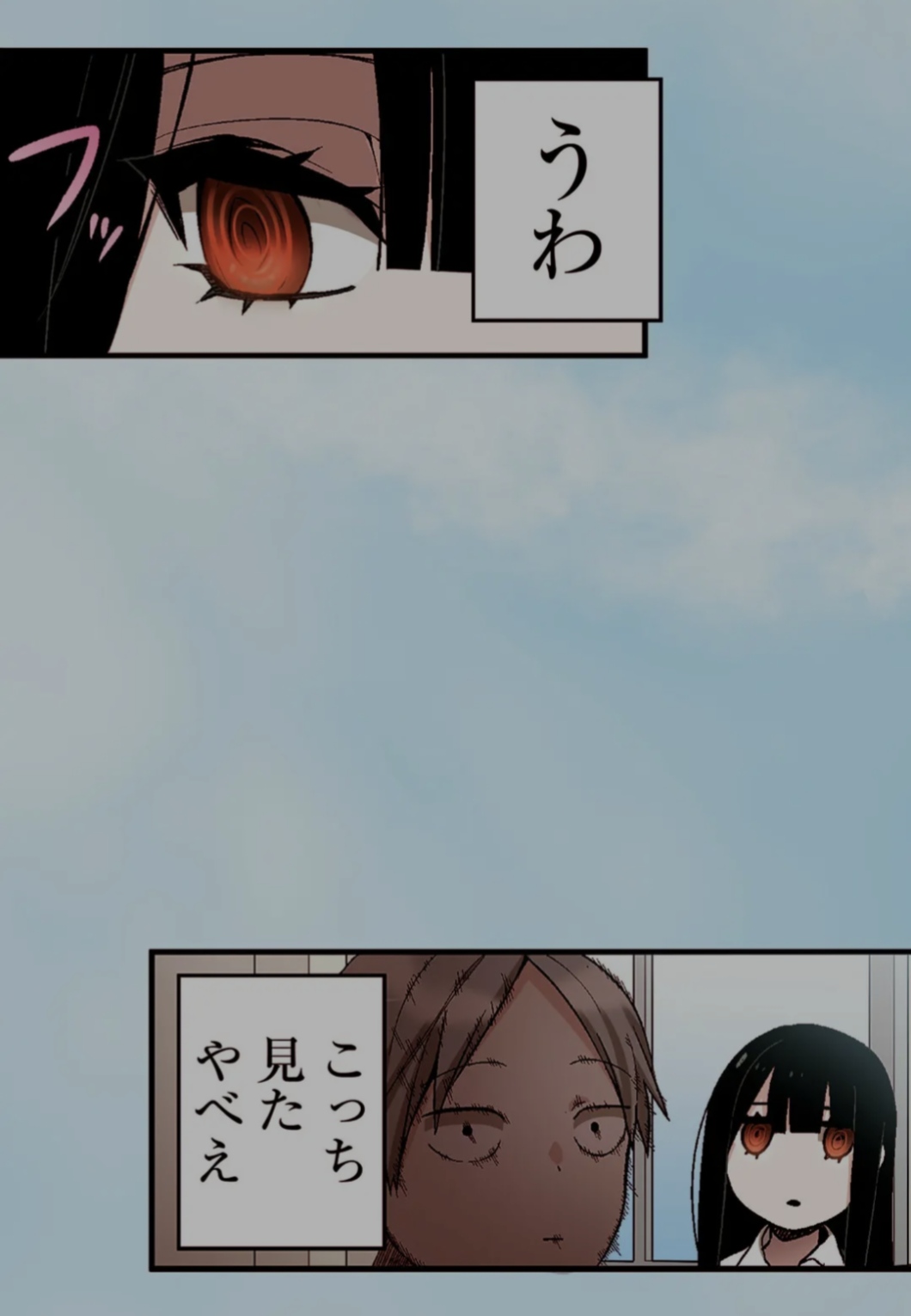地雷なんですか?地原さん Is Chihara-san a Landmine?
Japanese
Manga
In this post, we'll be reading some pages of chapter 1 of 地雷なんですか?地原さん or Is Chihara-san a Landmine? This web manga was published by GANMA!>, you can find this and more manga on their website so go check out more cool manga! With that said, let's get started!

Phrase: 全員席についたかー?授業始めるぞー
Romaji: Zen'in seki ni tsuita ka? Jugyō hajimeru zo!
English: Has everyone taken their seats? Class is starting!
- 全員 (zen'in) – Everyone
- 席 (seki) – Seat
- に (ni) – Indicates direction or location
- ついた (tsuita) – Arrived / sat down
- か (ka) – Question particle
- 授業 (jugyō) – Class
- 始める (hajimeru) – To begin
- ぞ (zo) – Emphasis marker
The stretched vowel at the end (“かー?” and “ぞー”) adds a casual and energetic, like the speaker is calling out across a classroom.
Phrase: 隣の席は噂の地雷系の人でした
Romaji: Tonari no seki wa uwasa no jirai-kei no hito deshita
English: “The person next to me was rumored to be a ‘landmine-type.’”
- 隣 (tonari) - Next / neighboring
- の (no) - Possessive marker (makes “next’s seat”)
- 席 (seki) - Seat
- は (wa) - Topic marker
- 噂 (uwasa) - Rumor
- 地雷系 (jirai-kei) - Noun (slang) “Landmine-type” – a social label for emotionally volatile or intense people
- 人 (hito) - Person
- でした (deshita) - Past version of です(desu) - was
Multiple の particles are stacked together to express a relationship: “the person → who is of the landmine-type → which is based on rumor.”

Phrase: まさか自分がその彼女とこんなに接近する機会があるとは Romaji: Masaka jibun ga sono kanojo to konnani sekkinsuru kikai ga aru towa English: No way I would have the opportunity to get this close to her!
- まさか (masaka)- No way / unexpectedly
- 自分 (jibun) - Myself / oneself
- が (ga) - Subject particle that marks the subject of the sentence
- その (sono) - That
- 彼女 (kanojo) - She / her / girlfriend (depending on context)
- と (to) - With /and (used to indicate accompaniment)
- こんなに (konnani) - This much
- 接近する (sekkin suru) - To approach / to get close
- 機会 (kikai) - Opportunity / chance
- が (ga) - Subject particle (marks the subject of the clause)
- ある (aru) - To exist / to have (used for inanimate things or abstract concepts)
- とは (towa) - Express surprise or disbelief
The word が is a particle that tells us who or what is doing something. For example:
- 自分が → I - the speaker
- 機会がある → There is an opportunity - the opportunity is what exists
Each が helps us know who or what the sentence is talking about.

Phrase: うわ. こっち見たやべえ Romaji: Uwa. kocchi mita yabae English: Yikes. She looked this way / She saw me
- うわ (uwa) - Yikes
- こっち (kocchi) - This way / Here
- 見た (mita) - Past version of (miru) - saw
- やべえ (yabae) - Oh no!
Did you manage to understand it easily? If yes, good job! If not, do not give up. It takes time and practice to read manga in japanese, so keep it up. If you enjoyed this content or it helped you, stay tuned for more. This website has some mini-games in the games section, so be sure to practice there. If you'd like to support my work of bringing these breakdowns, please consider buying a plan. It not only supports my website, but it also provides more perks on the website to help you learn japanese faster. Check it here. Take care!